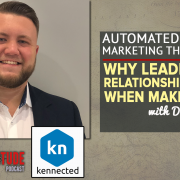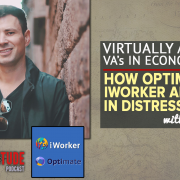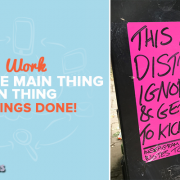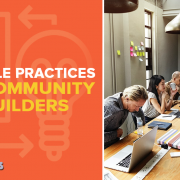As creatives, we’re taught to start with the end in mind. We’re taught to look at the big picture. If we keep that in front of us, we’ll eventually get to where we’re wanting to get to, no matter where we start.
This thinking process applies to creating just about everything.
In fact, Think Big, Start Small, Keep It Going was the topic of Amplify’s event last week. We had several speakers who have done just that. Here was the lineup:
Special VIP Guest Host: Mr. Richard Samuels
Featured Musician: Icie Marie Hinton
Artist Spotlight: Rebecca Robinson – Artist, Author, Fashion Entrepreneur
Featured Nonprofit: Community Action of Greater Indianapolis (C.A.G.I.) with Val M. Tate
• Keynote Speaker: Colin Martin – Founder of ViceRays
These individuals had incredible talent. Rebecca had some pretty interesting pieces (one of which I’m pretty sure was of Jack Sparrow – she just didn’t know it!). Icie had an impressive singing voice. And Val – wow, the organization she’s a part of (C.A.G.I.), I didn’t even know existed. They’re all about empowering individuals within the community to figure out how they can enrich themselves and their lives.
But then there was Colin.
Wow. Dude has had the life that many of us in the online entrepreneurs crave. But, interestingly enough (and I’m hearing this more and more), he got burnt out by it. A lot of the building he did was to simply keep an image of success. Always wanting and doing more.
Once he figured that these actions were what was tearing him up, he reallocated how he works. Today he has much less stress in his life than he did not too long ago.
Between all four speakers, you could see the talent oozing from them. You can see that they’re all headed towards great things.
But here’s the catch, talent or the potential for great things isn’t everything. It’s just that – potential.
We need to figure out what actions we can take now, to eventually get us to where we want.
Until then, we’re not going to get too far.
Football and Business
Over the weekend, I had the opportunity to go to an LTD conference in Greensboro, North Carolina. There were lots of great speakers but one that stood out to me was David Cutcliffe, head coach of the Duke football team.
As you guys probably have realized, I love comparing the inner workings of football to business development. So this was a treat for me.
As he was going through his presentation, I thought, this is great stuff! In the past I’ve written about this topic in a little detail, but not as detailed as he was presenting it.
So here’s a little bit of what David knows about thinking big, starting small, and building the right habits to succeed.
Raising Enthusiasm Leads to Successful Results
In the presentation, David started with a quote from Winston Churchill. He said “Success is the ability to go from one failure to another with no loss of enthusiasm”.
If he was to stop there, I’d be like “Yes, that is correct”. Interestingly, David changed it up a little bit. He said, “Success is the ability to go from one failure to another while gaining enthusiasm and passion”.
While the difference between those two statements might seem small at first, if you think about it, his perspective is powerful.
Let’s say you have two players training for a particular sport. They’re going through drill after drill, honing their skills.
One of the players goes from drill to drill, task to task, with little change of emotion.
The other player gets more emotional after each drill, determined to be better whether he fails or succeeds.
If you took these two individuals and placed them in a competition with each other? Who do you think would win? The first or the second?
For me, I believe the second would have a better chance to win. And that’s what I believe David’s quote is referring to.
Results Speak For Themselves
With that being an underlying value of David’s beliefs, how does it translate to the field and the team he’s in charge of? How does he put it into action?
Well, before we get there, let’s look at the results of his work with his team. This will give us a bit of perspective when we get to his methods.
From 1997 to 2007, Duke football was horrible. They had:
- Only 19 wins
- No bowl appearances
- Four or fewer wins each season
- Three no-win seasons
- A 25-game ACC losing streak
- And in December of 2007, the cumulative GPA of the team was 2.46
Since David came in 2008, they’ve had:
- 67 wins (which is more than a 360% of winning)
- Six bowl appearances
- Three consecutive bowl victories
- 31 ACC wins since the beginning of 2008 season
- ACC Coastal Division Champions in 2013
- And in May of last year (2018), the cumulative GPA was 3.126
It’s pretty apparent that the program got better.
Focus on the Little Things to Build a Foundation of Success
So what are the things that David changed to help his team find success? In fact, there’s three things he told the audience that he focuses on:
- Climate
- Practice Habits
- The 55
Here’s what he had to say about each one:
Climate
The atmosphere that a coach and staff create within a program to enable players to develop to their greatest potential. Great attitudes and a positive approach are critical to the proper atmosphere. It’s the nucleus of the program and will dictate the ability to be successful with the rest of the tangible values. It also gives a sense of hope and accomplishment to everyone involved.
In a recent post, we talked about how the new climate and expectation to win is a big reason why the Colts had a successful season last year.
Practice Habits
These are instrumental in allowing us to compete at the highest level. We must achieve excellent practice habits in order to achieve our goals.
Furthermore, he adds, that Power is equal to Work/Time (P = W/T). Work, then is equal to Our Habits (W=OH). So, in the end that means that the power that we produce is equal to the habits that we have over time.
Practice Makes Permanent!
The 55
Not entirely sure why David called this group of practices The 55. I think he said something about giving it a unique name that stuck. But what it consists of are practices he said were basic fundamental parts that if done right, they can hang with any other football team.
- Alignment
- Assignment
- Effort
- Execution
- Finish
He mentioned that if he watches film on the next opponent and they don’t do one of these parts perfectly, such as alignment, he knows right away that his team should be able to beat them.
In business and work, we need to realize what it is that we fundamentally have to do right each day, each week, etc. What are our core values? Our core habits? Are they getting us to where we want to be? If not, then we need to figure out what needs to be changed to get there.
Action Steps
So, that’s pretty much it for this post, guys. As I said, it was a good conference. A lot was learned and discussed with those that I went with. Very motivational.
If you’re counting on motivation and talent to get you through, then you’re not going to get far. We have to work our craft regularly whether or not we want to.
It’s when you can do that, when you know you’re onto something great.
Or as Coach Cutcliffe said, If you focus and follow through with the small stuff, the larger stuff will take care of itself.









